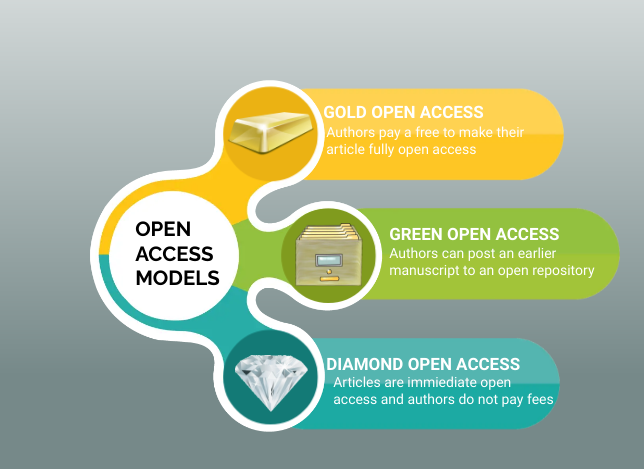Introduction to Academic Publishing
The models for academic publishing have changed dramatically over the last few decades. When the print model moved to the online environment and large publishers took over small society journals, academic research became increasingly more expensive to access. New models have emerged in response to this changing publishing landscape.
This page's content is from Navigating the Research Lifecycle for the Modern Researcher by Brianna Buljung, Emily Bongiovanni and Ye Li is licensed under a CC-BY-NC.
Types of publishing
There are various types of outlet for research and scholarly communication, with ranging levels of rigor and processes. These include self-publication, grey literature, and scholarly publishing. Scholarly publishing refers to works published in an academic (or scholarly) journal or conference. These scholarly journals contain articles written by experts or researchers in the field and the content has undergone a rigorous peer-review process.
Scholarly publishing is typically viewed as the high standard for disseminating research, however other outlets may be appropriate for certain types of publications. For example, grey literature includes industry or government agency reports. While this type of literature does not have the same level of review as scholarly publications, they are typically considered authoritative sources of information. Self-publication is typically the fastest, but least rigorous of publishing methods. Self-publication includes blogs or social media posts and self-published books. There is typically very little to no formal review process in place for the content.
Self-Publication |
Grey Literature |
Scholarly Publishing |
|
|
|
Reader access to journal content depends on the journal’s distribution model. The broad types of journals are traditional, Open Access, and hybrid. There are peer-reviewed journals in each of these models, however the access and distribution of these journals differ.
Traditionally, authors will transfer the rights to their works to the publisher and the publisher will charge readers to access the content. These journals use a subscription model for universities and institutions to pay for access to the journal’s content. In this subscription model, large publishers will offer bundles of journals at different costs to the university. These subscription costs are extremely expensive and many libraries struggle to maintain paying these subscriptions. Open Access publishing has emerged as a solution to these extreme costs.
Traditional |
Open Access |
Hybrid |
|
|
|
Open Access Publishing
Open Access (OA) publishing is relatively new, having just emerged within the last few decades. OA is different from traditional scholarly publishing models as the content is free for readers to access. There are many benefits to Open Access publishing by providing immediate and free access to academic scholarship. For example, free unrestricted access means all can benefit from the research, compared to just those who work at an institution that pays for access or who can afford it themselves. In addition, the increase in visibility can increase the citations and impact of the work.

Benefits of Open Access
Even though OA articles may be freely available to read, there may be costs to the authors to make their work open depending on the journal’s model. There are three main types of OA publishing: Gold OA, Green OA and Diamond (or Platinum) OA.

Open Access Models
Predatory Journals
Predatory journals take advantage of the open-access publishing model by charging publication fees without providing standard peer-review or editing services. Because predatory publishers do not follow best practices for academic publishing, they solicit and easily accept manuscripts, and offer rapid peer-review and publication.
In contrast, high-quality academic journals take their time reviewing and publishing articles because manuscripts are rigorously reviewed and edited in preparation for publication.
Predatory journal definition from The University of Texas MD Anderson Cancer Center Medical Library
We recommend using the following websites to help you make an informed decision:
- Think, Check, Submit
- Directory of Open Access Journals (DOAJ)
- Open Access Scholarly Publishers’ Association (OASPA)
